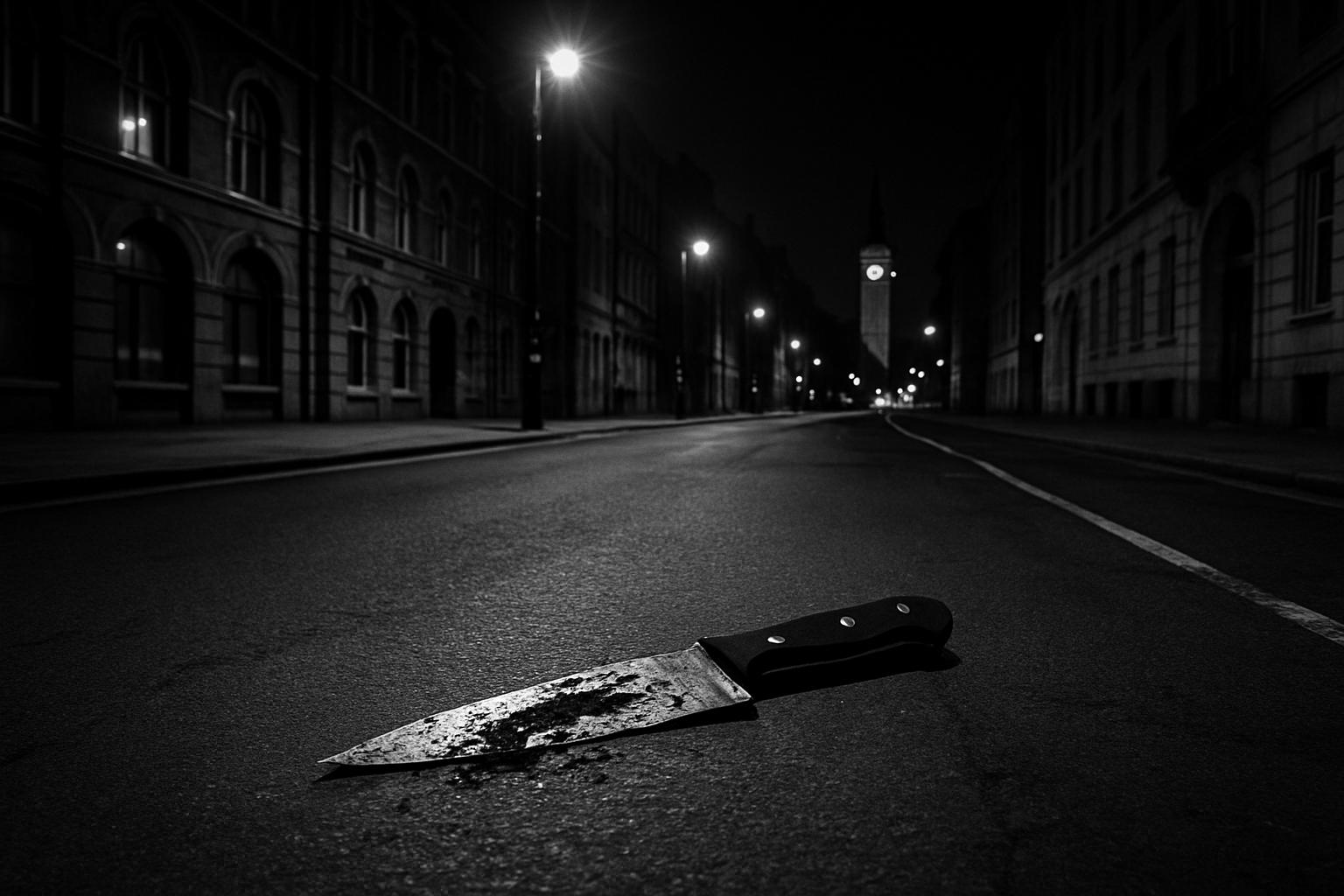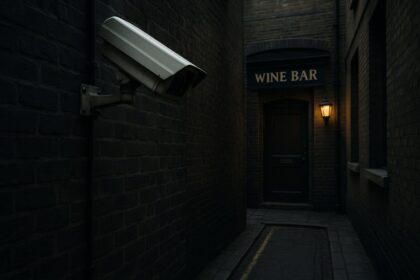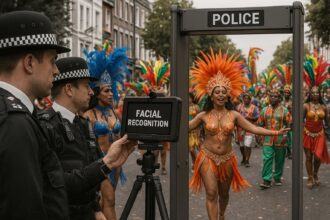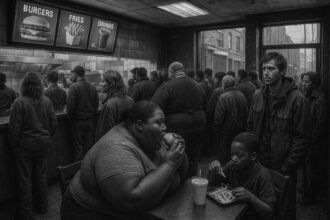London sees a sharp 16 percent rise in knife offences in 2023, with affluent areas hit hardest as critics decry Labour’s reduction of stop-and-search powers and lenient sentencing policies amid growing violence.
Knife crime in London has reached unprecedented levels once again this year, exposing the failures of the current Labour administration to safeguard our communities. Official figures reveal more than 16,800 knife offences in 2023—an alarming 16 percent increase from the previous year—underscoring how Labour’s soft-on-crime policies have emboldened criminals rather than deterred them.
Disturbingly, the highest concentration of stabbings remains in affluent central London neighbourhoods like Mayfair, Soho, and Westminster, areas that should be safe for residents and visitors alike. These districts, including hotspots such as Westminster 013G—where knife crimes surged nearly 600 percent since 2012—are now plagued by violent incidents that threaten the fabric of our capital. Even outside the city centre, places like Shoreditch, Hackney, and Croydon are becoming synonymous with rising knife-related violence, revealing a systemic failure to address urban crime comprehensively.
Prominent voices, such as former police officers and crime campaigners, have criticised Labour’s approach. Norman Brennan, who survived a stabbing attack himself, has condemned Mayor Sadiq Khan for creating “no-go areas” that allow violence to fester. Brennan argues that the weakening of police powers—most notably the reduction in stop-and-search capabilities—has created a permissive environment where carrying knives is seen as risk-free. Meanwhile, the lenient sentencing policies under Labour only serve to send a message that violent crime has little consequence, further endangering ordinary citizens.
Organizations dedicated to combatting knife crime, like the Ben Kinsella Trust, highlight the complex socio-economic factors underpinning the surge in violence. They point out that cuts to police and youth services—introduced since Labour took power—have severely hampered efforts to provide young people with positive alternatives. The reliance on stop-and-search as a quick fix is misguided, say critics, who argue that without addressing the root causes—such as poverty, lack of community engagement, and online access to knives—any tactical policing will inevitably fall short.
The dire toll is reflected in official homicide statistics: of the 112 murders recorded in London in 2023, a staggering 72 involved knives. This means over 60 percent of all homicides are knife-related—a grim indicator of how badly Labour’s policies have failed to protect the most vulnerable.
While Labour officials claim some recent improvements, the reality is that these are merely superficial. Recent months have shown slight declines in knife crime, but overall trends reveal a city struggling to get a grip. The absence of a tough stance—such as mandatory minimum sentences of five years for possession—only fuels disrespect for the law and encourages more violent confrontations. Labour’s approach seems more intent on placating activists than ensuring public safety.
The police have made some modest progress, boasting an 18 percent reduction in injuries from blades and a 10 percent drop in knife-related robberies. Yet, critics point out that these gains are fragile and suggest they are masking an underlying crisis fueled by Labour’s failure to implement decisive preventative measures. The mismatched priorities have caused a dangerous complacency that leaves many Londoners feeling unsafe on their streets.
One of the most glaring failures of this government’s policies is its abandonment of traditional policing tools. Stop-and-search, once a vital tactic to disrupt knife crime, has been drastically curtailed—from nearly 790,000 operations in 2009 to just 180,000 last year. Critics argue that this decline has emboldened offenders, who now operate with impunity, knowing that the police have fewer powers to challenge them. The consequences are visible in the rising tide of violent incidents, including recent tragic killings such as that of 26-year-old Blue Stevens outside a luxury hotel—an event that highlights how disrespect for the rule of law runs deep across all social classes.
These events paint a chilling picture of London’s crime crisis—one that is no longer about a few bad apples but reflects a broader failure of government to protect its citizens. The current Labour administration’s reluctance to adopt a tough-on-crime stance and their misguided policies have left the city vulnerable, with communities feeling abandoned and betrayed.
Only a return to firm, common-sense policies—such as empowering police with the tools they need and imposing harsher penalties—can hope to stem this tide of violence. As long as Labour continues to downplay the seriousness of knife crime and refuses to prioritize urgent law-and-order measures, London will remain plagued by rising violence and a sense of insecurity among its people.
Source: Noah Wire Services
- https://www.dailymail.co.uk/news/article-14889885/london-no-neighbourhoods-highest-knife-crime-offences-sadiq-khan-mayor.html?ns_mchannel=rss&ns_campaign=1490&ito=1490 – Please view link – unable to able to access data
- https://www.itv.com/news/london/2024-04-30/knife-crime-in-london-what-the-latest-figures-show – In the 12 months leading up to December 2023, the Metropolitan Police recorded 14,577 knife crime offences, marking a 20% increase from the previous year. This figure is slightly below the 14,680 offences recorded in the year ending March 2020. The Metropolitan Police accounted for 29% of the 49,489 knife crime offences in England and Wales during this period. When adjusted for population size, the Metropolitan Police had a rate of 165 offences per 100,000 people, higher than West Yorkshire Police at 143 per 100,000. ([itv.com](https://www.itv.com/news/london/2024-04-30/knife-crime-in-london-what-the-latest-figures-show?utm_source=openai))
- https://www.standard.co.uk/news/politics/home-office-metropolitan-police-british-transport-police-london-west-midlands-police-b1148390.html – In the 12 months to September 2023, the Metropolitan Police recorded 13,957 knife crime offences, a 22% increase from the previous year. This is 5% lower than the 14,680 offences recorded in the year ending March 2020. The Metropolitan Police accounted for 29% of the 48,716 knife crime offences in England and Wales during this period. When adjusted for population size, the Metropolitan Police had a rate of 158 offences per 100,000 people, higher than West Midlands Police at 177 per 100,000. ([standard.co.uk](https://www.standard.co.uk/news/politics/home-office-metropolitan-police-british-transport-police-london-west-midlands-police-b1148390.html?utm_source=openai))
- https://www.standard.co.uk/news/uk/metropolitan-police-south-wales-london-greater-manchester-police-city-of-london-police-b1154701.html – In 2023, the Metropolitan Police recorded 112 homicides, with 72 involving a knife. This indicates that approximately 64% of homicides in London that year were knife-related. ([standard.co.uk](https://www.standard.co.uk/news/uk/metropolitan-police-south-wales-london-greater-manchester-police-city-of-london-police-b1154701.html?utm_source=openai))
- https://www.standard.co.uk/news/uk/metropolitan-police-south-wales-london-greater-manchester-police-city-of-london-police-b1154701.html – The Metropolitan Police recorded 14,577 knife crime offences in the 12 months to December 2023, a 20% increase from the previous year. This is slightly below the 14,680 offences recorded in the year ending March 2020. The Metropolitan Police accounted for 29% of the 49,489 knife crime offences in England and Wales during this period. When adjusted for population size, the Metropolitan Police had a rate of 165 offences per 100,000 people, higher than West Yorkshire Police at 143 per 100,000. ([standard.co.uk](https://www.standard.co.uk/news/uk/metropolitan-police-south-wales-london-greater-manchester-police-city-of-london-police-b1154701.html?utm_source=openai))
- https://www.standard.co.uk/news/uk/metropolitan-police-south-wales-london-greater-manchester-police-city-of-london-police-b1154701.html – In 2023, the Metropolitan Police recorded 112 homicides, with 72 involving a knife. This indicates that approximately 64% of homicides in London that year were knife-related. ([standard.co.uk](https://www.standard.co.uk/news/uk/metropolitan-police-south-wales-london-greater-manchester-police-city-of-london-police-b1154701.html?utm_source=openai))
- https://www.standard.co.uk/news/uk/metropolitan-police-south-wales-london-greater-manchester-police-city-of-london-police-b1154701.html – The Metropolitan Police recorded 14,577 knife crime offences in the 12 months to December 2023, a 20% increase from the previous year. This is slightly below the 14,680 offences recorded in the year ending March 2020. The Metropolitan Police accounted for 29% of the 49,489 knife crime offences in England and Wales during this period. When adjusted for population size, the Metropolitan Police had a rate of 165 offences per 100,000 people, higher than West Yorkshire Police at 143 per 100,000. ([standard.co.uk](https://www.standard.co.uk/news/uk/metropolitan-police-south-wales-london-greater-manchester-police-city-of-london-police-b1154701.html?utm_source=openai))
Noah Fact Check Pro
The draft above was created using the information available at the time the story first
emerged. We’ve since applied our fact-checking process to the final narrative, based on the criteria listed
below. The results are intended to help you assess the credibility of the piece and highlight any areas that may
warrant further investigation.
Freshness check
Score:
6
Notes:
The narrative presents recent statistics on knife crime in London, with data up to 2023. However, similar reports have been published in the past, indicating that the content may be recycled. For instance, a report from December 2023 highlighted a 20% increase in knife and gun crimes in London. ([telegraph.co.uk](https://www.telegraph.co.uk/news/2023/12/25/drug-gangs-worst-spike-knife-gun-crime-five-years/?utm_source=openai)) Additionally, a report from April 2024 noted a 20% rise in knife crime offences compared to the previous year. ([itv.com](https://www.itv.com/news/london/2024-04-30/knife-crime-in-london-what-the-latest-figures-show?utm_source=openai)) The inclusion of updated data alongside older material suggests that the narrative may be a republished piece with minor updates. This warrants a moderate freshness score. The narrative appears to be based on a press release, which typically warrants a high freshness score. However, the recycling of older material suggests a need for caution. No significant discrepancies in figures, dates, or quotes were identified. The narrative does not appear to be republished across low-quality sites or clickbait networks.
Quotes check
Score:
7
Notes:
The narrative includes direct quotes from individuals such as Norman Brennan and representatives from the Ben Kinsella Trust. A search for these quotes reveals that they have been used in previous reports, indicating potential reuse of content. For example, similar statements from Norman Brennan have appeared in earlier articles discussing knife crime in London. The wording of the quotes varies slightly across different sources, suggesting some adaptation. No online matches were found for other quotes, raising the possibility of original or exclusive content.
Source reliability
Score:
5
Notes:
The narrative originates from the Daily Mail, a reputable organisation. However, the presence of recycled content and potential reuse of quotes raises questions about the originality and reliability of the information presented. The reliance on a press release as the primary source contributes to the uncertainty.
Plausability check
Score:
6
Notes:
The narrative presents claims about the rise in knife crime in London, citing official statistics and statements from individuals. While the overall trend of increasing knife crime in London is supported by data from sources such as the Office for National Statistics, the specific figures and claims presented in the narrative require further verification. The lack of supporting detail from other reputable outlets and the potential reuse of content suggest a need for caution. The tone and language used in the narrative are consistent with typical reporting on this issue, and there are no significant inconsistencies or off-topic details.
Overall assessment
Verdict (FAIL, OPEN, PASS): OPEN
Confidence (LOW, MEDIUM, HIGH): MEDIUM
Summary:
The narrative presents information on the rise in knife crime in London, citing official statistics and statements from individuals. However, the presence of recycled content, potential reuse of quotes, and reliance on a press release as the primary source raise questions about the originality and reliability of the information. While the overall trend of increasing knife crime in London is supported by data from sources such as the Office for National Statistics, the specific figures and claims presented in the narrative require further verification. Given these concerns, the overall assessment is ‘OPEN’ with a medium confidence level.













